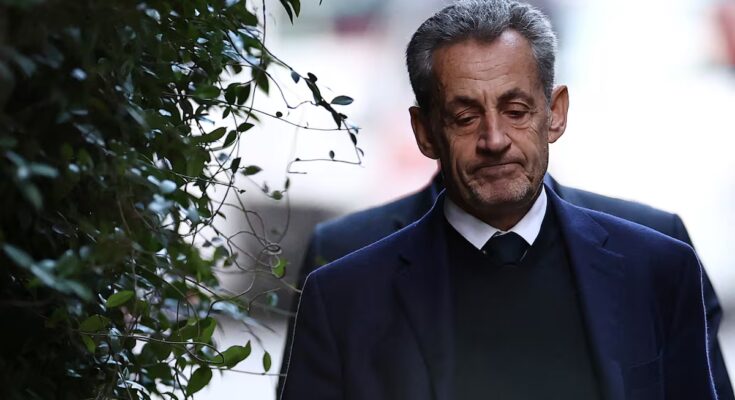On Monday morning, the Prosecutor General’s Office requested the release under judicial supervision of former French President Nicolas Sarkozy. The decision, after a hearing in which the former president participated via videoconference from prison, is to be announced at 1.30pm. “It’s hard, very hard. It certainly is for any prisoner. I would even say it’s exhausting,” Sarkozy said during his speech before the court before thanking “the humanity” of the officials who looked after him in recent days and made “this nightmare (…) bearable”.
Sarkozy could thus be released from prison after three weeks of imprisonment. The former conservative president was sentenced to five years in prison on September 25 for conspiracy in the case of illegal financing of his presidential campaign in 2007 by Muammar Gaddafi’s Libyan regime. The judge will now have to decide whether the former president can continue to serve his sentence on bail until his appeal is resolved.
On October 21, the former president became the first former French head of state to cross the gate of a penitentiary center to serve a sentence behind bars. He was admitted to the La Santé prison in Paris, where there are 754 inmates. A prison, like many in France, that goes beyond its capacity.
But Sarkozy does not meet the other prisoners. The former head of state remained in an isolation area so as not to have contact with other prisoners. Sarkozy, who received threats and shouts from the other prisoners upon entering, is not a prisoner like the others. The Minister of the Interior, Laurent Nuñez, confirmed that the former President of the Republic benefited from an unprecedented security system in the history of the prison.
Detained in solitary confinement in a sector with around twenty cells, Sarkozy was permanently accompanied by two armed security agents, “in consideration of his status and the threats weighing on him”, in the words of the minister. This innovation caused some misunderstanding even within the prison administration itself, as well as a violent reaction from the UFAP-UNSA-Giustizia union. This centre, one of the two main prison officials’ unions, denounced in a statement “a senseless device, security madness and, above all, an unprecedented humiliation for the entire penitentiary body”.
After the sentence of September 25, Sarkozy denounced a serious blow to the rule of law. The former president believes he is innocent and has received the support of the political class.
The weekend before going to prison, Sarkozy visited President Emmanuel Macron at the Elysée Palace. He also received a controversial prison visit from the Minister of Justice, Gérald Darmanin, who justified his action as a measure to control the security of a former president. “Guaranteeing the safety of a former President of the Republic in prison, an unprecedented event, does not in any way threaten the independence of judges, but falls within the supervisory duty of the head of the administration who is responsible to Parliament pursuant to Article 20 of the Constitution”, responded the Minister of Justice.
The Paris court found it proven that between 2005 and 2007, when he was Interior Minister, Sarkozy maneuvered to obtain financial support from the Libyan regime through his closest collaborators. He was acquitted of the crimes of passive corruption and diversion of funds because, although “it was confirmed that there were Libyan funds arriving in France”, it could not be proven that they were intended for his presidential campaign.
Eleven other people were implicated in this sprawling case that required years of investigation, including two of his former ministers. This is the fifth trial that the former French president has faced in the last five years.
Last December, Sarkozy had already been sentenced to three years in prison for corruption and influence peddling in the so-called telephone wiretapping case. He was accused of trying to bribe a prosecutor to inform him of another investigation in which he was involved and which was kept under summary secrecy in exchange for favors. Since it was three years, he only had to serve one under house arrest, with an electronic bracelet.



